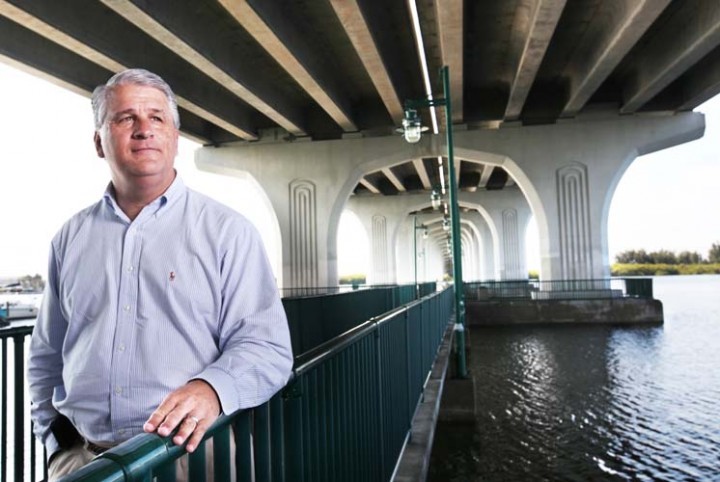
INDIAN RIVER COUNTY — Responding to a motion from District 3 Commissioner Tim Zorc, the County Commission today unanimously approved sending a letter supporting Harbor Branch Oceanographic Institute’s application for a grant to study the impact of septic systems on the Indian River Lagoon.
At the county lagoon symposium in March, Harbor Branch scientist Brain Lapointe, Ph.D. presented his findings, based on isotope analysis, that a majority of nutrient pollution in the lagoon comes from human waste. The Harbor Branch study was funded internally using money from the sale of “Save Our Seas” license plates.
Lapointe in now applying to the Florida SeaGrant program for money to try and pinpoint which areas of the lagoon are most severely impacted by septic system waste, with the eventual goal of upgrading the systems or replacing them with sewers.
Florida SeaGrant is a university-based program that supports research, education and extension to conserve coastal resources and enhance economic opportunities for the people of Florida. It is a partnership between the Florida Board of Education, the National Oceanic and Atmospheric Administration, and Florida’s citizens and governments.
County resident Bob Johnson questioned the wisdom of sending the letter, suggesting it could lead to the county shouldering an undue share of the cost of restoring the lagoon, but Zorc pointed out the grant and study are Harbor Branch, not county, initiatives.
He and County Administrator Joe Baird said the county wouldn’t incur any added expense by backing the grant application but that the county will get the benefit of receiving LaPointe’s final report to help guide future lagoon policy and projects.
“This board has universally supported efforts to address problems in the lagoon,” said County Commission Chairman Joe Flescher. “We have an obligation to preserve our lagoon and we are doing so.”
The county’s support of continued septic system studies comes on the heels of strong action taken by the Vero Beach City Council on the same policy matter. At a recent meeting, the council voted to instruct city staff to further study septic pollution and begin to look at alternatives for installing sewers in neighborhoods on the barrier island where a large number of homes on or near the water have outdated septic tanks that leak into ground water and the lagoon.



